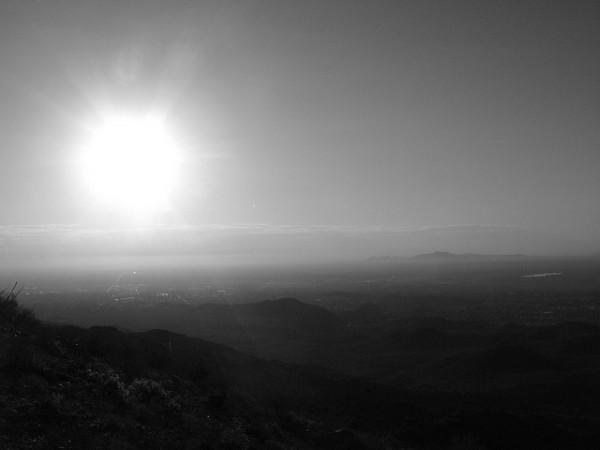
A scientific report card about mankind's effect on the environment has stated that climate change, as well as higher rates of extinction of plants and animals, are eventually leading the Earth into a "danger zone" for humanity.
The team of experts, working on the joint project from the International Geosphere-Biosphere Programme (IGBP) and the Stockholm Resilience Centre, tried to expand on a 2009 report about "planetary boundaries" for safe human use. The report presented by them warns that four planetary boundaries have now been crossed - meaning humankind is in a "danger zone".
"I don't think we've broken the planet but we are creating a much more difficult world," Sarah Cornell, one of the authors, told Reuters, Daily Mail reports.
There are a total of nine planetary boundaries. The two major boundaries that have been crossed are climate change – with carbon dioxide concentrations passing 350 parts per million, and the loss of "biosphere integrity" or biodiversity – considering that a significant number of species have become extinct.
The report, published in the journal Science, stated that both climate change and loss of species have "the potential on its own to drive the Earth System into a new state should they be substantially and persistently transgressed."
The other two, which crossed the limit, were land-use change and fertiliser pollution. Airborne pollution levels have not been assessed well as yet.
The research charts the "Great Acceleration" in human activity since the industrial revolution began in 1750, until 2010; and also the consequent changes in the Earth's system – the "greenhouse gas levels, ocean acidification, deforestation and biodiversity deterioration."
"It is difficult to overestimate the scale and speed of change. In a single lifetime humanity has become a planetary-scale geological force. Transgressing a boundary increases the risk that human activities could inadvertently drive the Earth System into a much less hospitable state," says lead author Professor Will Steffen.
The boundaries that were stated as being within the safe limits were freshwater use, ocean acidification and ozone depletion.










